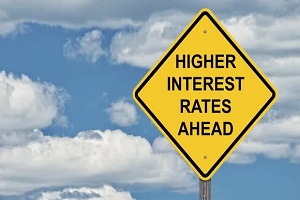Neelam Rahim / neelam@radioislam.co.za
4 min read
25 January 2023 / 12:35 pm CAT

Picture credit: Cape Talk
South African Reserve Bank Governor Lesetja Kganyago will announce the latest interest rate decision tomorrow. He is also hosting the United States Secretary of the Treasury, Janet Yellen, at the SARB’s interim site in Centurion on the same day.
Radio Islam International discusses the expectations for the latest interest rate with Professor at Wits Business School, Jannie Rossouw.
Another increase in the fuel price after somewhat of a decrease, many people complain that even when there is a decrease, it is likely to be followed by an increase. Not a very hefty one at this stage, although the fuel price remains high.
According to Prof Rossouw, fuel prices are determined by the dollar price of oil and the rand dollar exchange rate. In the past week, the dollar price of fuel has increased in international markets.
A spike in fuel prices in South Africa can be expected with the dollar price increase.
“The fuel price is dependent on international markets and South Africa is on the receiving end of it,” he says.
There is no likelihood of the government intervening and mitigating the fuel price. Prof Rossouw said the government’s finances are so squeezed that it is in no position to raise the levy.
He added that if the government raises the levy, it would have to borrow the money it loses from the increased levy on the capital markets. The South African market is already borrowing something like a billion rand daily with the current budget.
Meanwhile, amid these factors, there is the 18/ hike on electricity tariffs. The President has asked Eskom to hold on, while many say that the President does not have the prerogative to advise so.
Sharing his views with Radio Islam, Prof Rossouw said the President spoke out of tune, while NERSA is a statutory body and has considered the facts and agreed that Eskom could have an income increase of just over 18/.
“This raises the question of whether Eskom has to follow NERSA’s instructions at all. In this case, due to the President exercising pressure Eskom decides to go for the lower increase as the President suggested. It may result in the future, NERSA will merely become an advisory body and upon recommendation of increase, Eskom can announce a higher adjustment. This is not how a modern democracy can work,” he says.
Listen below to the interview with Presenter Moulana Sulaimaan Ravat and Professor Jannie Rossouw on Radio Islam’s podcast.







0 Comments